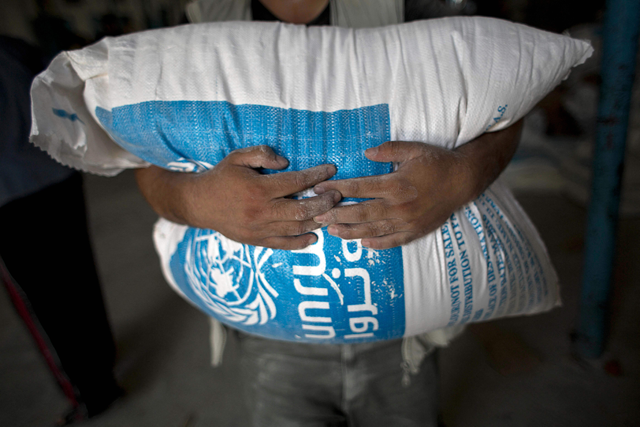You are here
Supply-side reforms can help beat sluggish growth — IMF
By Reuters - Apr 09,2016 - Last updated at Apr 09,2016
WASHINGTON — The International Monetary Fund (IMF) offered a solution to persistently sluggish economic growth last week that included proposals to deregulate product markets and adopt policies to boost labour market participation.
But the analysis in the IMF's annual World Economic Outlook acknowledged arguments from sceptics of such "supply side" reforms that deregulation can cause near-term falls in wages and price deflation and so need to be accompanied by fiscal stimulus aimed at boosting near term.
The IMF said new research shows that structural changes to labour makets and some more heavily regulated business sectors could help lift potential output over the medium term while also helping to strengthen consumer confidence in the near term.
It recommended deregulation of the retail and professional services sectors and network-based sectors such as air, rail and road transportation, electricity and gas distribution, telecom and postal services, particularly in the eurozone and Japan.
But the fund stressed that it is important to pair supply side reforms with fiscal stimulus measures to boost near-term demand and cushion negative shocks. For example, reductions in unemployment benefits and worker protection laws should be paired with reductions in labour taxes to help boost take-home pay and draw people back into the labour force.
"There is a role for complementing structural reform with macroeconomic policy support. That includes fiscal stimulus wherever space is available," said IMF researcher Romain Duval, a lead author of the report.
Duval and co-author Davide Furceri said that product market deregulation can start to pay growth dividends immediately regardless of the economic environment so they should be forcefully implemented. Economic growth can increase by one percentage point by the third year of the reforms, their research showed.
Another analytical chapter released by the IMF shows that emerging markets are coping better with recent capital outflows due to stronger reserve buffers, less foreign currency debt and more flexible exchange rates.
Those with more prudent fiscal policies, less public debt, stronger financial oversight, and foreign exchage flexibility are avoiding the abrupt currency shocks that characterissed previous major emerging market outflows in the late 1980s and late 1990s, the IMF concluded.
Separately, a World Bank official said recently that concerns over competing countries scrambling for resources such as oil, minerals and farmland have decreased due to lower commodity and food prices.
High oil costs from 2007 to 2008 contributed to higher food prices and food riots in several developing nations including Haiti, Bangladesh and Mozambique.
But a reduction in petrol prices and other factors mean food prices are currently hovering around a seven-year low, providing relief for low-income consumers.
Prior to 2015, at the height of the commodities boom, sovereign wealth funds and large investors poured money into acquiring long-term access to mines and farmland.
Analysts said this scramble for natural resources disproportionately hurt the poor.
The situation has changed markedly since then, said World Bank official Michael Jarvis.
"I am not sure I see a scramble for resources," Jarvis, the bank's global lead for extractive governance, said in Toronto at a mining industry conference.
"Some of the debates around that have died down due to low commodity prices. But they may come back."
As part of what some analysts considered a rush for resources, an area of farmland larger than Poland was sold or leased to foreign investors, according to a 2014 Swedish study.
To avoid another round of large-scale land deals or fight for natural resources if commodity prices spike again, a coalition of 300 organisations launched a campaign last month to double the amount of land formally owned by communities and indigenous groups.
If demand for commodities rises in the face of a growing global population, formal landownership for small farmers provides protection against displacement by outside investors, rights campaigners said.
Related Articles
WASHINGTON — The International Monetary Fund (IMF) and the Tunisian government have reached a tentative agreement to unblock a $1.9 billion
WASHINGTON — The International Monetary Fund (IMF) warned Wednesday that the world economy is "highly vulnerable" and called for new mechani
DUBAI — Gaza, Lebanon and Sudan will take decades to recover from the conflicts raging on their soil, the International Monetary Fund


















